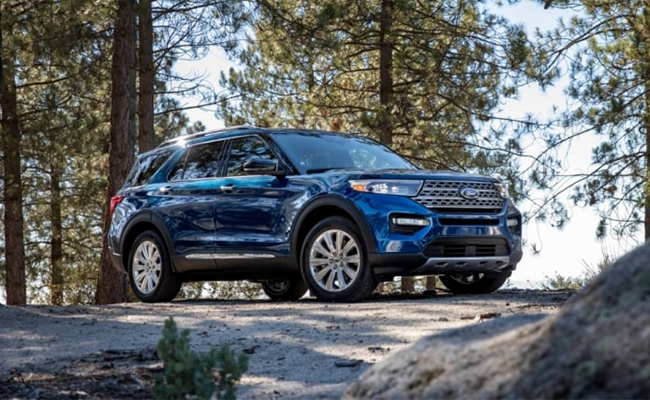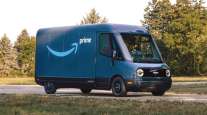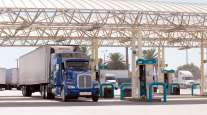Illinois’ Vehicle Manufacturing Future to be Shaped in Three Cities

[Stay on top of transportation news: Get TTNews in your inbox.]
From electric trucks and startups to international megamergers, the state of the fast-evolving auto industry in Illinois comes down to a tale of three cities: Normal, Belvidere and Chicago.
Plants in all three cities will be building SUVs — by far the largest segment of auto sales — but their paths forward will be shaped by radically different forces.
In downstate Normal, a hibernating auto town is eagerly awaiting the rebirth of a long-dormant plant, as electric truck startup Rivian flips the switch and begins production of its inaugural models. Still reeling from the loss of a third shift, the Fiat Chrysler plant in Belvidere now faces a massive merger with Peugeot. And fresh off a $1 billion renovation, Ford’s Chicago assembly plant is at full speed heading into 2020.
Both Fiat Chrysler and Ford recently ratified four-year contracts with the United Auto Workers, avoiding the prolonged strike that shut down General Motors for 40 days before reaching an agreement in October.
But a future that includes everything from electric and self-driving vehicles to assembly lines increasingly staffed by robots could portend more challenges for Illinois auto plants — and their workers — down the road.
Adding to the uncertainty, new car sales are projected to decline 1.2% to 16.8 million vehicles in 2020, according to the annual forecast released last month by the National Automobile Dealers Association. That would mark the first time annual new vehicle sales dip below 17 million units in five years.
“Most of the pent-up demand for new vehicles has been met,” said Patrick Manzi, senior economist for the dealers association. “Many people, even those that could afford a new vehicle, may be tempted to shop used.”
New car sales bottomed out at 10.4 million vehicles during the Great Recession in 2009, and peaked at 17.5 million in 2016. Light trucks and SUVs have since supplanted sedans as the vehicle of choice among consumers, and now represent 72% of new vehicle sales, Manzi said.
“That shift is permanent,” Manzi said.

The Rivian R1S is manufactured at the company's plant in Normal, Ill. (Rivian)
Rivian, Normal, Ill.
Current products: Electric truck and SUV models set to begin production in late 2020
Employees: 250, with plans to hire “thousands” as the plant gears up
Startup electric truck manufacturer Rivian received a big boost as it heads into its first year of production, closing on a $1.3 billion round of funding late last month, including new investments from Ford and Amazon.
By all indications, auto manufacturing is indeed returning to Normal, a central Illinois city that used to build Mitsubishi sedans and SUVs.
In October, the excitement was palpable when Rivian held an open house in the town circle, offering sneak peeks of its sleek prototypes, meet-and-greets with its CEO and founder, RJ Scaringe, and the promise of thousands of new jobs.
The rubber will presumably meet the road in late 2020, as the first vehicles — a high-performance electric truck and SUV — are expected to roll off the line at a former Mitsubishi plant being retooled on the outskirts of town.

Scaringe
“When you see what’s in this facility, I think the scale of what we’re doing is going to become more clear to a lot of people,” said Scaringe, 36.
Founded 10 years ago, Plymouth, Mich.-based Rivian is gaining momentum in its mission to become the Tesla of trucks, drawing more than $2.8 billion in investments last year from Ford, Cox Automotive and Amazon, among others. In September, Rivian announced it will build 100,000 custom electric delivery vehicles for Amazon alongside its consumer-focused truck and SUV.
When the Mitsubishi plant closed in July 2015 after nearly 30 years of production, it left 1,100 people out of work. In its heyday, the plant had about 4,000 employees producing more than 200,000 vehicles per year.
In addition to $4 million in local incentives, Rivian is set to receive $49.2 million in state tax credits over 15 years if it meets employment and investment targets. Those goals include creating 1,000 new jobs by 2024.
Currently there are about 250 employees at the Normal plant, with hiring slated to ramp up along with production. Rivian will begin filling preordered trucks and SUVs, with the first deliveries in 2020 and “many customers” taking delivery in 2021, according to company spokeswoman Amy Mast.
Rivian will begin delivering Amazon vans in 2021, the company said.
“All the right signals are happening,” Scaringe said. “We have a lot of interest in electrification, both from a regulatory point of view and overall public policy point of view, but you also see in terms of consumer demand, consumers are beginning to really start to see the benefit of an electric drive train.”
Rivian’s R1T pickup and R1S SUV will be able to go from zero to 60 mph in about three seconds and travel up to 400 miles on a single charge, according to the company.
While optimism is running high in Normal ahead of Rivian’s launch, skepticism remains over how quickly demand for its $69,000 base model truck — and electric vehicles in general — will grow. In 2019, electric vehicles accounted for about 1.4% of 17.1 million new cars and light trucks sold in the U.S., according to dealer association economist Manzi.
“I don’t think it’s going to be a monumental shift,” Manzi said. “I think it’s going to be gradual over the course of the next decade.”

The 2020 Ford Explorer is one of several vehicles manufactured at Ford's Chicago Assembly Plant. (Ford.com)
Ford’s Chicago Assembly Plant
Current products: Ford Explorer, Lincoln Aviator and Police Interceptor SUVs
Employees: 5,700, with an additional 1,100 at Ford’s nearby stamping plant in Chicago Heights
In March, Ford spent $1 billion and shut down its Torrence Avenue plant on the Southeast Side for a month, transforming the nearly century-old facility with a host of new amenities for workers, and an army of new robots to help them build vehicles.
The automaker’s oldest plant in continuous operation enters the new year hitting on all cylinders, with 5,700 hourly employees working three shifts to churn out the new 2020 Ford Explorer, Lincoln Aviator and Police Interceptor SUVs. The Chicago Assembly Plant, which made the Model T when it opened in 1924, phased out production of the Taurus sedan last year to focus exclusively on building all-new SUVs.
The investment was also used to upgrade Ford’s stamping plant in Chicago Heights and convert another facility into a full assembly line to build the Police Interceptor and several lower volume hybrid models. Ford added 1,000 employees during the year across its Chicago footprint as the renovated Torrence Avenue plant ramped up production.
“They’re working like crazy,” Ford spokeswoman Kelli Felker said. “We are at full production right now and have been for a while.”

Jeep Cherokees are manufactured at Fiat Chrysler's Belvidere Assembly Plant near Rockford, about 60 miles west of Chicago. (FCANorthAmerica.com)
Fiat Chrysler’s Belvidere Assembly Plant
Current product: Jeep Cherokee
Employees: 4,000
For 55 years, tiny Belvidere has been an auto town, surviving ownership changes, economic downturns and shifting consumer tastes to build a widely varied succession of nameplates amid the cornfields about 75 miles northwest of Chicago.
That legacy took another blow in May when Fiat Chrysler Automobiles eliminated the third shift at the Belvidere Assembly Plant near Rockford, leaving the nearly 1,400 members of “C Crew” out of a job because of slowing demand for the plant’s only product — the Jeep Cherokee.
Now the town and the automaker’s remaining 4,000 workers face new uncertainty in the wake of the proposed merger of Fiat Chrysler and Peugeot, which agreed to terms on Dec. 18, forming what will be the world’s fourth-largest automaker with annual sales of 8.7 million vehicles. The deal is expected to close in early 2021.
The Belvidere plant opened in 1965, building a range of vehicles from the Chrysler New Yorker to the Dodge Neon. During Chrysler’s bankruptcy in 2009, the plant was down to 200 employees before Fiat and a government bailout rescued it and the company.
In 2017, the plant became the exclusive home for the Jeep Cherokee, the sweet spot in an auto industry where SUVs have supplanted cars in many family garages. Production rose 27% in 2018, with nearly 270,000 Cherokees built in Belvidere.
But the robust supply outstripped demand and in February, Fiat Chrysler announced its plans to scale back to two shifts and lay off the 1,371 least-tenured union workers at the plant as Cherokee sales declined in the increasingly crowded SUV segment. The current Cherokee model was introduced in 2013, and analysts say it may be getting a little long in the tooth compared to newer SUVs.
“The synergies of costs will not come from any plant closures resulting from the transaction,” Tavares said.
Chicago Tribune’s Ally Marotti contributed.
Want more news? Listen to today's daily briefing:
Distributed by Tribune Content Agency, LLC




